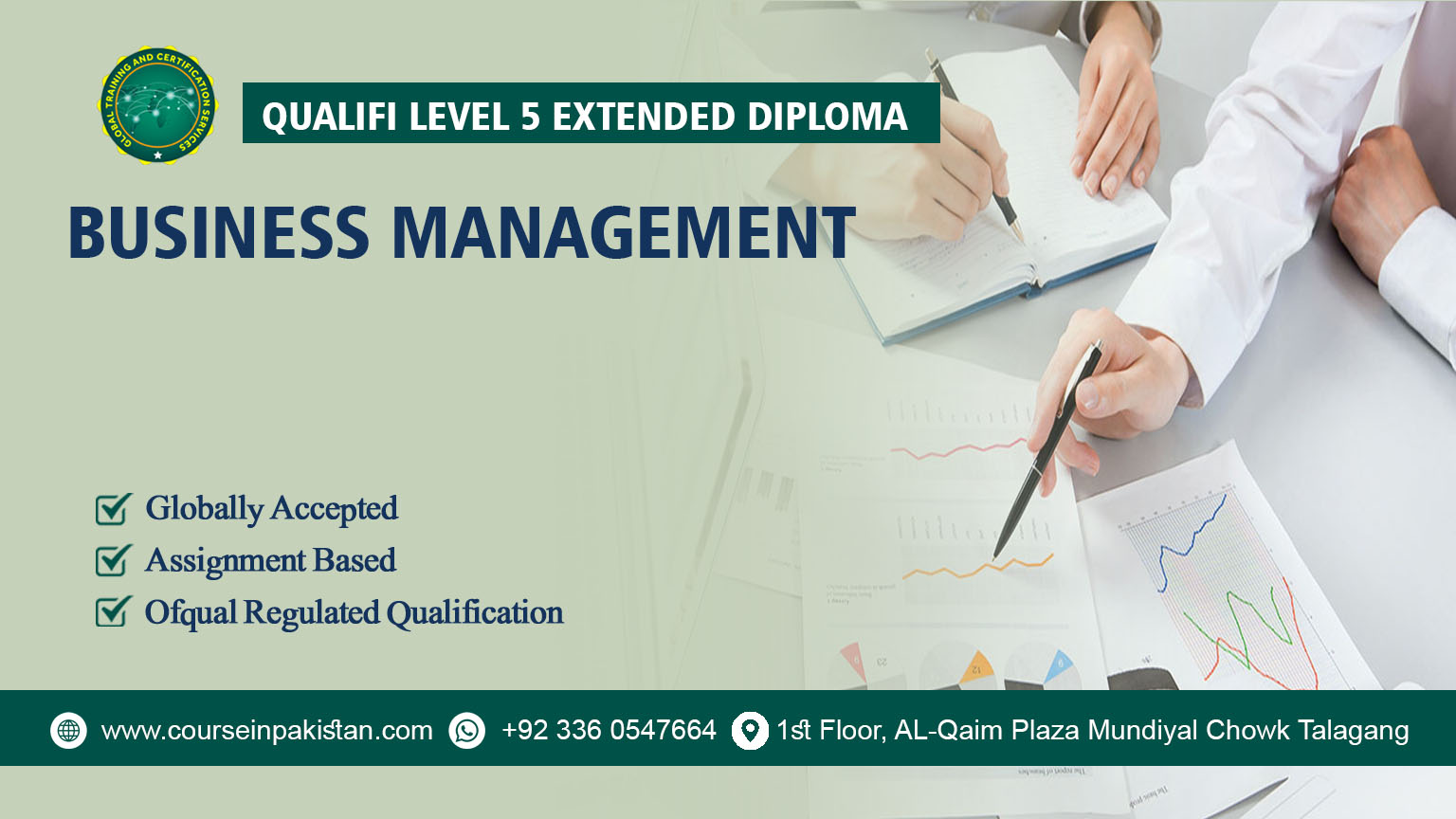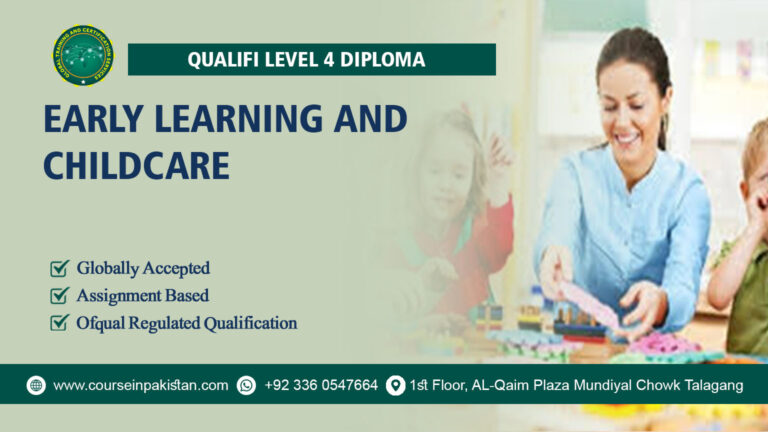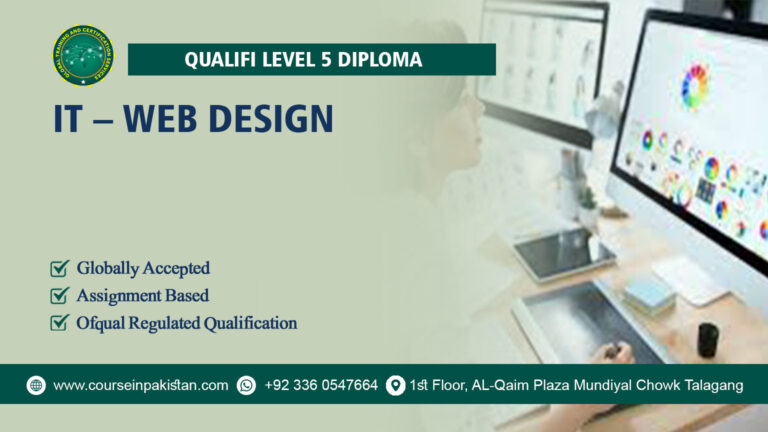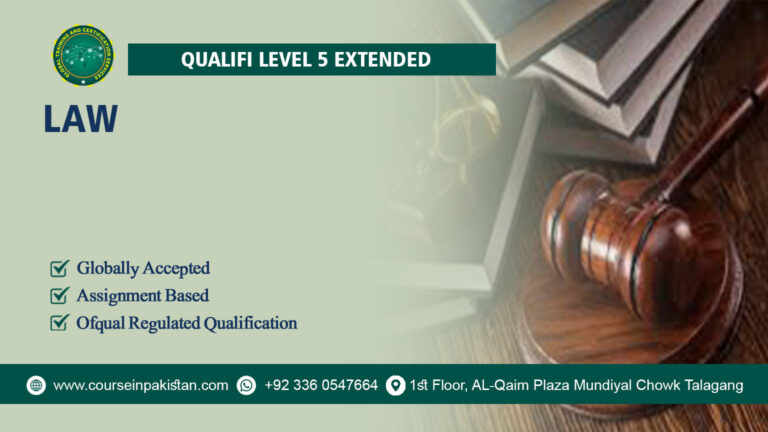
Qualifi Level 5 Extended Diploma in Business Management
Are you looking to advance your career in business management and leadership? The Qualifi Level 5 Extended Diploma in Business Management offers a comprehensive pathway for individuals seeking to develop advanced skills and knowledge in managing organizations effectively. In this blog post, we will explore what this diploma entails, its benefits, study units, learning outcomes, target audience, and future progression opportunities.
The Qualifi Level 5 Extended Diploma in Business Management is designed to provide learners with a deep understanding of strategic management principles, leadership techniques, and operational strategies essential for leading organizations in today’s competitive global economy. This diploma emphasizes practical skills, critical thinking, and decision-making abilities necessary to drive business success and sustainability.
This diploma covers a broad spectrum of key topics in business management:
- Strategic Management
- Financial Management
- Marketing Management
- Operations Management
- Human Resource Management
- Leadership and Team Management
- Business Ethics and Corporate Governance
- Digital Business Management
- Entrepreneurship and Innovation
- Change Management
Course Benefits
- Advanced Leadership Skills: Develop leadership capabilities to inspire teams and drive organizational success.
- Strategic Acumen: Gain insights into strategic management practices to formulate and execute business strategies effectively.
- Financial Expertise: Understand financial management principles to make informed decisions and optimize financial performance.
- Operational Excellence: Learn to streamline operations, enhance efficiency, and achieve operational excellence.
- Career Advancement: Enhance career prospects with a recognized qualification in business management.
- Networking Opportunities: Connect with industry professionals and peers to build a valuable network for future collaborations.
Course Study Units
The study units in this diploma program include:
Communications in Organisations
Leadership and the Organisation
Financial Awareness
Managing Change
Business Operations
Developing Teams
Responding to the Changing Business Environment
Effective Decision Making
Business Development
Business Models and Growing Organisations
Customer Management
Risk Management and Organisations
Learning Outcomes
Upon completion of the Qualifi Level 5 Extended Diploma in Business Management, learners will:
-
Communications in Organisations
- Effective Communication Skills: Develop strong verbal and written communication skills to convey ideas and information clearly and persuasively within organizational contexts.
- Interpersonal Skills: Enhance interpersonal skills to foster positive relationships and collaboration among team members and stakeholders.
- Communication Strategies: Implement effective communication strategies to facilitate teamwork, resolve conflicts, and achieve organizational goals.
- Presentation Skills: Demonstrate proficiency in delivering compelling presentations and engaging stakeholders effectively.
Leadership and the Organisation
- Leadership Principles: Understand key leadership theories and models to effectively lead and inspire teams toward achieving organizational objectives.
- Strategic Vision: Develop and articulate a strategic vision that aligns with organizational values and goals to guide decision-making and inspire action.
- Change Leadership: Lead organizational change initiatives by fostering a culture of innovation, adaptability, and continuous improvement.
- Ethical Leadership: Demonstrate ethical leadership practices by making decisions that uphold integrity, accountability, and social responsibility.
Financial Awareness
- Financial Analysis: Analyze financial statements and reports to assess the financial health and performance of the organization.
- Budgeting and Forecasting: Develop and manage budgets and financial forecasts to allocate resources effectively and achieve financial objectives.
- Financial Decision-Making: Apply financial management principles to make informed decisions that optimize financial performance and mitigate risks.
- Financial Strategy: Develop financial strategies aligned with organizational goals to support long-term sustainability and growth.
Managing Change
- Change Management Strategies: Implement change management frameworks and methodologies to effectively plan, implement, and monitor organizational changes.
- Stakeholder Engagement: Engage stakeholders throughout the change process to build support, manage resistance, and ensure successful outcomes.
- Adaptability and Resilience: Foster organizational adaptability and resilience to respond proactively to external challenges and opportunities.
- Communication During Change: Communicate change initiatives clearly and transparently to stakeholders to minimize uncertainty and resistance.
Business Operations
- Operational Efficiency: Identify opportunities to streamline processes and optimize operational efficiency to reduce costs and enhance productivity.
- Quality Management: Implement quality management principles and practices to deliver products and services that meet or exceed customer expectations.
- Supply Chain Management: Manage supply chain activities effectively to ensure seamless operations and timely delivery of goods and services.
- Performance Metrics: Develop and monitor key performance indicators (KPIs) to measure and improve operational performance and organizational effectiveness.
Developing Teams
- Team Building: Foster a collaborative team environment by promoting trust, respect, and open communication among team members.
- Team Dynamics: Understand team dynamics and roles to leverage individual strengths and skills for collective success.
- Coaching and Mentoring: Provide guidance and support to team members through coaching and mentoring to facilitate professional growth and development.
- Conflict Resolution: Resolve conflicts and address team challenges constructively to maintain productivity and morale.
Responding to the Changing Business Environment
- Environmental Analysis: Analyze changes in the business environment and their impact on organizational strategies and operations.
- Adaptation Strategies: Develop strategies to respond effectively to evolving market dynamics, technological advancements, and regulatory changes.
- Innovation and Agility: Foster a culture of innovation and agility to capitalize on emerging opportunities and maintain competitive advantage.
- Strategic Alignment: Align organizational goals and strategies with the changing business environment to enhance resilience and sustainability.
Effective Decision Making
- Decision-Making Models: Apply decision-making frameworks and methodologies to evaluate alternatives and make informed decisions.
- Risk Assessment: Assess risks associated with decision options and implement risk management strategies to minimize potential impacts.
- Data-Driven Decision Making: Utilize data analytics and information systems to gather insights and support decision-making processes.
- Ethical Considerations: Consider ethical implications when making decisions to uphold integrity and corporate social responsibility.
Business Development
- Market Analysis and Strategy: Conduct market research and analysis to identify opportunities and develop strategies for business growth and expansion.
- Strategic Partnerships: Formulate and implement strategies for building strategic partnerships and alliances to leverage complementary strengths and resources.
- Product and Service Innovation: Drive innovation in products and services to meet evolving customer needs and preferences and differentiate offerings in the market.
- Market Penetration: Develop and implement strategies to penetrate new markets and increase market share through effective positioning and marketing.
Business Models and Growing Organisations
- Business Model Evaluation: Evaluate different business models and their suitability for supporting organizational growth and scalability.
- Organizational Structure: Design and implement organizational structures and processes that support growth and operational efficiency.
- Scaling Strategies: Develop strategies to scale operations and expand market presence while maintaining financial stability and customer satisfaction.
- Resource Allocation: Allocate resources strategically to support growth initiatives and maximize return on investment.
Customer Management
- Customer Relationship Management (CRM): Implement CRM strategies and practices to build and maintain strong customer relationships and enhance customer loyalty.
- Customer Experience Enhancement: Design and deliver exceptional customer experiences across all touchpoints to drive customer satisfaction and retention.
- Customer Feedback and Insights: Collect and analyze customer feedback and insights to continuously improve products, services, and customer interactions.
- Complaint Resolution: Address customer complaints and concerns promptly and effectively to maintain positive customer relationships and reputation.
Risk Management and Organisations
- Risk Identification and Assessment: Identify and assess risks associated with organizational objectives, operations, and external factors.
- Risk Mitigation Strategies: Develop and implement risk management strategies and contingency plans to minimize potential threats and vulnerabilities.
- Compliance and Governance: Ensure compliance with legal and regulatory requirements and uphold ethical standards and corporate governance practices.
- Crisis Management: Plan and prepare for potential crises or disruptions to minimize impact on organizational operations and reputation.
The Qualifi Level 5 Extended Diploma in Business Management provides learners with a robust framework to develop essential skills and competencies needed to excel in leadership and management roles across various industries. By mastering these study units, individuals can effectively navigate challenges, drive organizational success, and capitalize on opportunities in today’s dynamic business environment. Whether aspiring to advance in managerial positions, lead organizational change initiatives, or enhance business operations, this diploma offers a solid foundation for achieving professional growth and making a meaningful impact in the business world.
Who is This Course For?
This course is ideal for:
- Experienced managers aiming to enhance their leadership and strategic management skills.
- Business professionals aspiring to advance into senior management or executive roles.
- Entrepreneurs looking to deepen their understanding of business management principles and practices.
Future Progression
Upon successfully completing the diploma, learners can progress to:
- Higher-level qualifications such as Level 6 and Level 7 Diplomas in Strategic Management, Business Leadership, or Global Business.
- Specialized courses in areas like Digital Marketing, Project Management, or International Business.
- Senior managerial roles across various industries including finance, healthcare, retail, and technology.
The Qualifi Level 5 Extended Diploma in Business Management equips learners with the skills, knowledge, and qualifications needed to excel as strategic leaders in today’s dynamic business environment. Whether you aspire to lead teams, drive organizational growth, or innovate business processes, this diploma provides a solid foundation for achieving professional success and making a positive impact in your chosen field. Invest in your future with Qualifi and take the next step towards realizing your career aspirations in business management.






